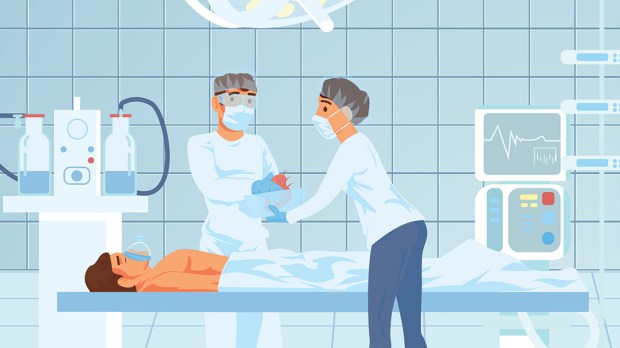If you were on a transplant list, would it matter to you if the organ was obtained from a living person who died because of the donation procedure itself? What if she had volunteered?
Your thoughts on this topic have implications beyond the issue of transplantation.
As the former co-director of Vanderbilt University’s lung transplant program and a practicing intensive care unit physician, I see organ donation as a selfless gift to those approaching death on transplant wait lists.
However, I’m wrestling with the emerging collision between the worlds of transplantation and euthanasia.
At international medical conferences in 2018 and 2019, I listened as transplant and critical care physicians discussed “death by donation” — ending people’s lives (volunteers even without disease, who are simply tired of living) with informed consent by taking them to the operating room and, under general anesthesia, opening their chest and abdomen surgically while they are still alive to remove vital organs for transplantation into other people.
The big deal here is that death by donation would bypass the long-honored dead donor rule, which forbids removal of vital organs until the donor is declared dead. Death by donation would, at present, be considered homicide to end a life by taking organs.
The mechanics of obtaining organs after death from either euthanasia or natural cardiac death (both already legalized in Canada, Belgium and Netherlands) can be suboptimal for the person receiving the transplant, because damage occurs to organs by absence of blood flow during the 5- to 10-minutes-long dying process. This interval is called ischemia time. Death by donation purports to offer a novel solution. Instead of retrieving organs after death, organ removal would be done while organs are still being receiving blood.
While literally “giving yourself” to others might seem commendable at first glance, let’s discuss three downstream considerations to abandoning the dead donor rule.
- People with physical and mental disabilities have expressed that they feel stigmatized and that society devalues their lives. Would this send them a not-so-subtle message to get out of the way and do something noble with their healthy organs?
- How quickly would we see expansion whereby those who can’t speak for themselves are included as donors?
- What does it mean for all of us when our healers — physicians — are in a position that directly overrides nearly 2,500 year-long prohibitions against taking life?
Consider the case of Ben Mattlin, who suffers from spinal muscular atrophy. In a 2012 column for the New York Times, he wrote of the “thin and porous border between coercion and free choice” for those who feel devalued. On the subtle erosion of his autonomy, he wrote: “You also can’t truly conceive of the many subtle forces (to die) — invariably well meaning, kindhearted, even gentle, yet as persuasive as a tsunami — that emerge when your physical autonomy is hopelessly compromised.”
Civil society is measured by how we treat our most vulnerable members. Euthanasia laws are structured to protect vulnerable populations, but what are the facts?
According to a 2015 article in the NEJM, of the 3,882 deaths due to physician-assisted suicide or euthanasia in Flanders, Belgium, in the year 2013 alone, 1,047 (27%) were due to medication dosages to hasten death without patients’ consent. Such patients are generally unconscious and may or may not have family members around.
In 2014, a statementon end-of-life decisions by the Belgian Society of Intensive Care Medicine asserts that “shortening the dying process” should be permissible “with use of medication … even in absence of discomfort.”
In discussing these facts, two prominent physicians, one from the Netherlands and another from Harvard, told me that where they come from, they call that murder.
When physicians are participating in a procedure designed to take a person’s life, will patients feel 100% certain that their physician is firmly on the side of healing? What message does it send about the value of every human life when physicians endorse the exchange of one life for another? What effect has it already had on physicians complicit in such death-causing procedures?

